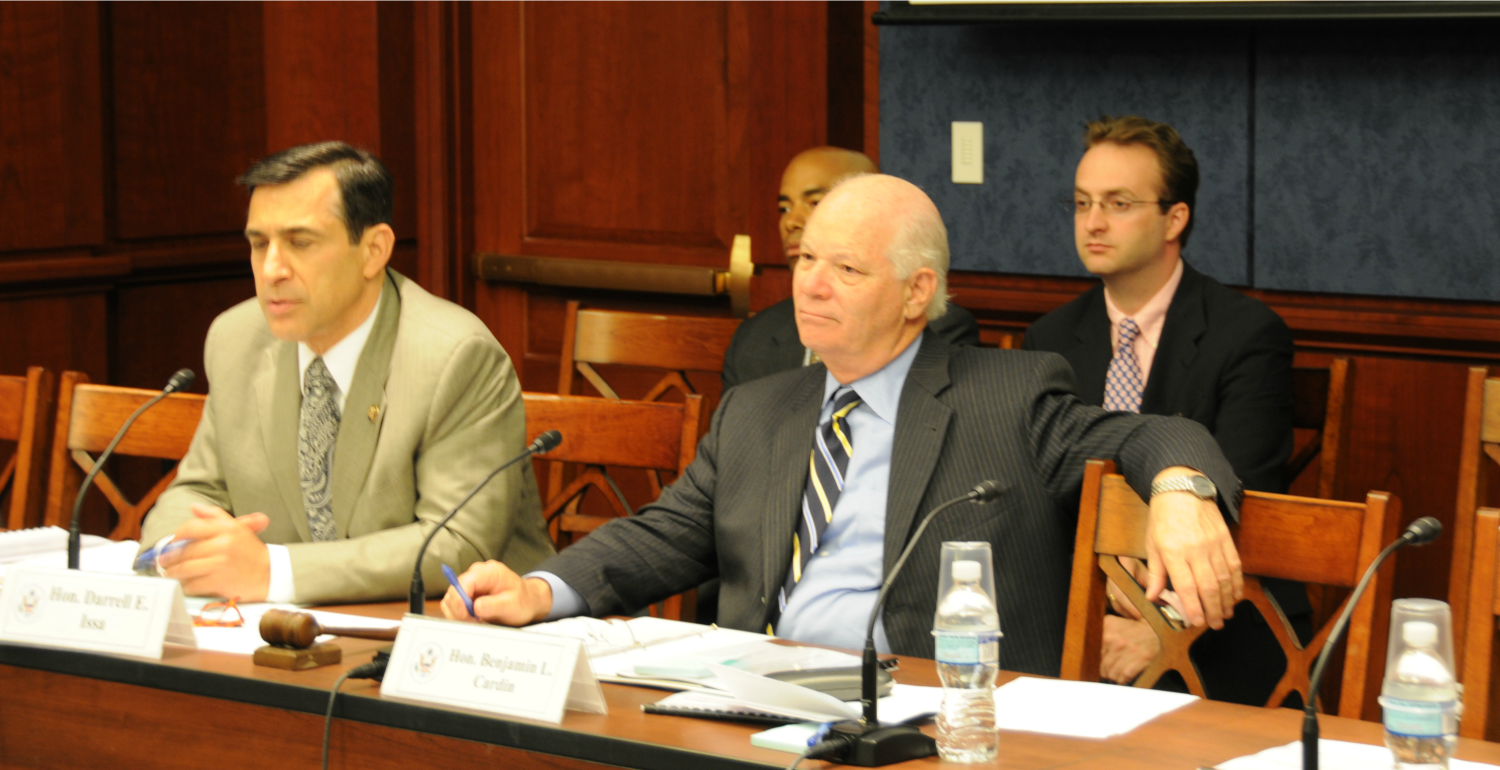This hearing discussed U.S. foreign policy towards Russia, focusing on how to improve relations while taking Russia’s compliance with human rights seriously. The witnesses and Commissioners discussed the implications of Dmitri Medvedev becoming president and Vladimir Putin retaining power as Prime Minister.
Members
Witnesses
Relevant Issues
Relevant Countries
Leadership

Conspiracy Theories, Antisemitism, and Democratic De...
Sep 18, 2025Antisemitism is indicative of underlying decay in societies where it prospers. Unique from other forms of racial or religious bigotry, antisemitism is often the terminal phase of conspiratorial thinking […]

Helsinki Commission Ranking Member Cohen Celebrates ...
Aug 01, 2024WASHINGTON—Congressman Steve Cohen (TN-9), the Organization for Security and Cooperation in Europe’s 56-nation Parliamentary Assembly’s Special Representative on Political Prisoners, today welcomed news that three journalists and Paul Whelan, wrongly […]

Russia’s Persecution of Ukrainian Christians
Jul 24, 2024Independent Ukraine has enjoyed a robust tradition of religious freedom. As such, Ukrainians today represent a variety of faiths, including many Christian denominations. Unfortunately, Russia—which has little tolerance for independent […]

Helsinki Commission Advances Human Rights, Demands f...
Oct 19, 2023By Shannon Simrell, Senior Policy Advisor Between October 2-13, 11 Helsinki Commission staff joined approximately 1,400 representatives of OSCE participating States (pS) and civil society representatives in Warsaw, Poland in […]

Vladimir Kara-Murza: Putin’s Personal Prisoner
Sep 20, 2023Stream here: HEARING: Vladimir Kara-Murza: Putin’s Personal Prisoner – YouTube Vladimir Kara-Murza, a father, husband, and a freedom fighter, has been in detention for over five hundred days and is currently […]
Helsinki Commission Leadership Celebrate Pardon of N...
Jun 23, 2023Washington—Today, the Chairman and Ranking Member of the Commission on Security and Cooperation in Europe, also known as the U.S. Helsinki Commission, Representative Joe Wilson (SC-02) and Ranking Member Steve […]
HELSINKI COMMISSION SENDS APPEAL TO GEORGIAN PRESIDE...
Apr 28, 2023WASHINGTON— The leadership of the Commission on Security and Cooperation in Europe, also known as the U.S. Helsinki Commission, Chairman Representative Joe Wilson (SC-02), Co-Chairman Senator Ben Cardin (MD), and […]

CHURCH, STATE, AND RUSSIA’S WAR ON UKRAINE
Apr 27, 2023The Putin regime has long used the Russian Orthodox Church (ROC) to consolidate its power at home and abroad. Under the leadership of Patriarch Kirill, the ROC has explicitly endorsed […]
Helsinki Commission Chair and Co-Chair: Statement on...
Feb 20, 2023WASHINGTON—Following reports of the sharp deterioration of Azerbaijani dissident Bakhtiyar Hajiyev, Helsinki Commission Chairman Rep. Joe Wilson (SC-2) and Co-Chairman Sen. Ben Cardin (MD) issued the following joint statement: “We […]
Congressmen Cohen and Wilson Introduce Resolution Re...
Oct 28, 2022WASHINGTON – Congressman Steve Cohen (TN-09), Co-Chairman of the Commission on Security and Cooperation in Europe, also known as the Helsinki Commission, and the Commission’s Ranking Member, Congressman Joe Wilson […]
Congressmen Cohen and Wilson Introduce Resolution Re...
Oct 28, 2022WASHINGTON – Congressman Steve Cohen (TN-09), Co-Chairman of the Commission on Security and Cooperation in Europe, also known as the Helsinki Commission, and the Commission’s Ranking Member, Congressman Joe Wilson […]
Helsinki Commission Slams Shutdown of Novaya Gazeta
Sep 08, 2022WASHINGTON—Helsinki Commission Chairman Sen. Ben Cardin (MD), Co-Chairman Rep. Steve Cohen (TN-09), Ranking Member Sen. Roger Wicker (MS), and Ranking Member Rep. Joe Wilson (SC-02) today condemned the shutdown of […]


